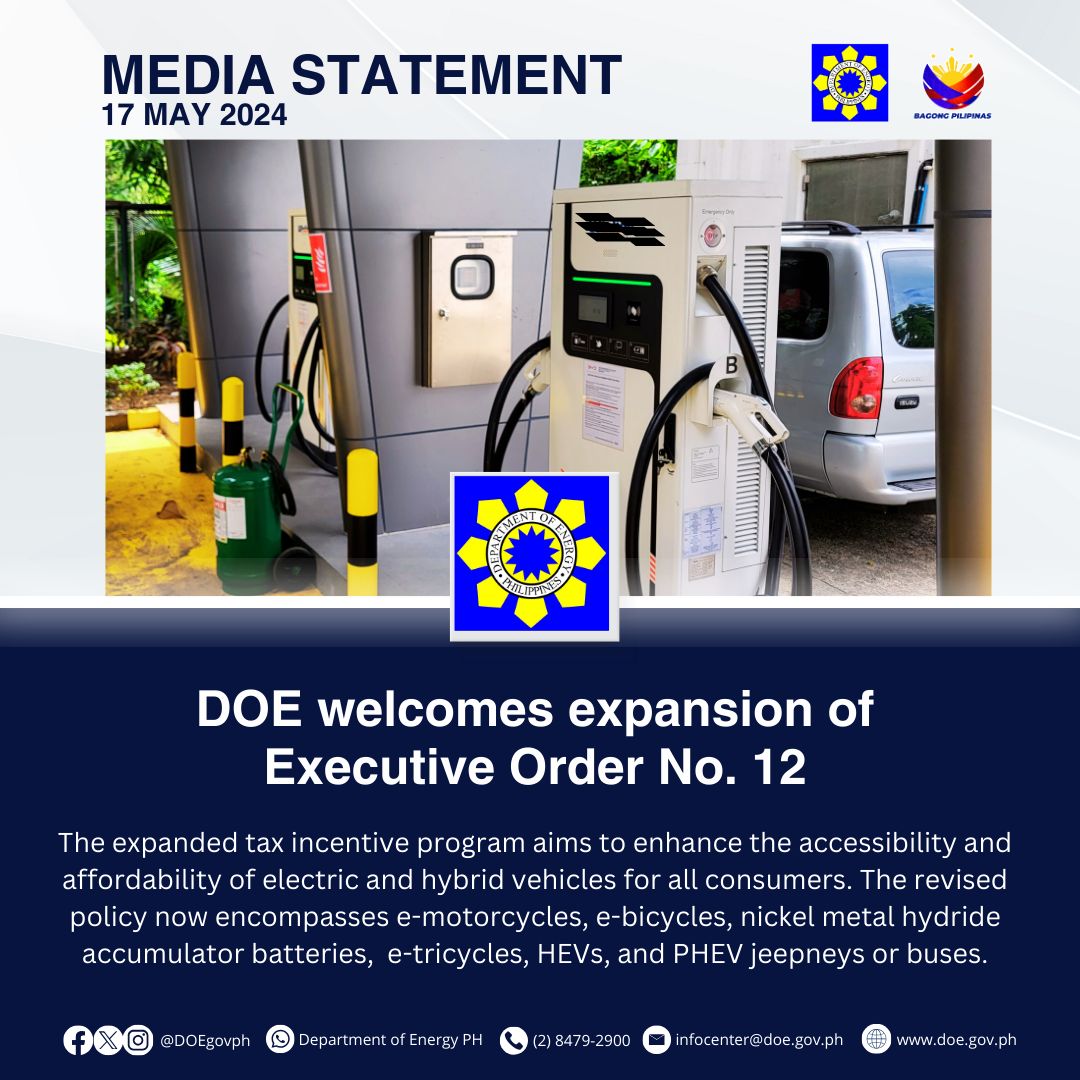
The Department of Energy (DOE) welcomes the approval by the National Economic and Development Authority (NEDA) Board of the expansion of tax breaks for two and three-wheeled battery electric vehicles (BEVs), hybrid electric vehicles (HEVs), and plug-in hybrid electric vehicles (PHEVs) until 2028.
The NEDA Board, chaired by President Ferdinand Marcos Jr., approved on 15 May 2024, the expansion of the coverage of Executive Order (EO) No. 12, which originally decreased tariffs on electric vehicles (EVS) until 2028. The revised policy now encompasses e-motorcycles, e-bicycles, nickel metal hydride accumulator batteries, e-tricycles, HEVs, and PHEV jeepneys or buses.
The expanded tax incentive program aims to enhance the accessibility and affordability of electric and hybrid vehicles for all consumers. This initiative encourages a shift away from fossil fuel dependency and contributes to reducing greenhouse gas emissions.
Energy Secretary Raphael P.M. Lotilla said that “by broadening the scope to include a wider range of electric and hybrid vehicles, we are not only simplifying environmentally friendly choices for consumers but also fostering innovation and growth within the country’s electric vehicle industry program, subject to an annual review.”
In February 2023, President Marcos Jr. signed EO 12, temporarily eliminating tariffs for EVs and their components for five years. However, this EO did not include two and three-wheeled EVs, HEVs, and PHEVs.
The Secretary added that the extension of tax incentives aligns with a comprehensive strategy to facilitate the transition of land transport vehicles to EVs, in line with targets set under the Comprehensive Roadmap for the Electric Vehicle Industry (CREVI). He noted that the expansion of tax incentives will stimulate demand for electric and hybrid vehicles, encourage domestic manufacturing and assembly, and generate new jobs within the green technology sector.
According to data from the Land Transportation Office, as of 2023, there were 7,515 EVs among the 14,269,414 registered land transport vehicles in the country.
The CREVI aims to reach 311,700 EVs by 2028 under the business-as-usual scenario, along with establishing 7,300 EV Charging Stations (EVCS) in the short term period or from 2023 to 2028. As of April 2024, there are at least 563 registered EVCS charging points nationwide recognized by the DOE. ###
